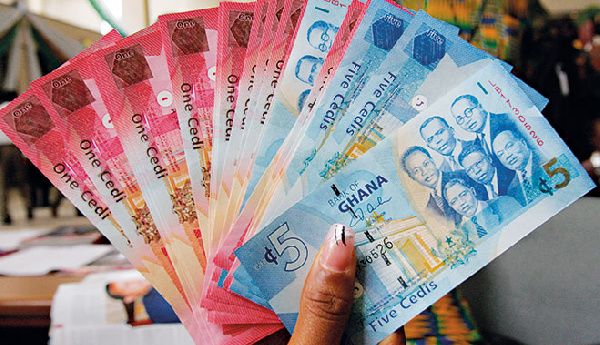Ghana’s monthly inflation hits 10-month high on Cedi slump
The country’s dollar bond maturing in 2030 advanced 0.41 cent to 68.3 cents on the dollar, after the country reached a memorandum of understanding with its official creditors on debt revamp.
- Advertisement -
Ghana’s monthly inflation rate soared to a 10-month high in May, as a sharp slump in the cedi led to a surge in the cost of non-food items.
Prices rose 3.2% last month, the most since July, Government Statistician Samuel Kobina Annim told reporters in the capital, Accra, on Wednesday.
- Advertisement -
The annual inflation rate fell to 23.1% from 25% in April, due to favorable base effects, he said. The drop was less than expected. The median of four economists’ estimates in a Bloomberg survey was 21.7%
- Advertisement -
The cedi has depreciated almost 14% against the dollar in the past three months, making it the worst-performing currency of those tracked by Bloomberg. It traded little changed at 15 per dollar on Wednesday in Accra from the day before.
The country’s dollar bond maturing in 2030 advanced 0.41 cent to 68.3 cents on the dollar, after the country reached a memorandum of understanding with its official creditors on debt revamp.
The deal paves way for the International Monetary Fund to make its next disbursement of $360 million to the West African nation.
The cedi’s slide has been driven by increased foreign-exchange demand for imports and a decline in cocoa earnings. Revenue from exports of the beans, which Ghana uses to defend the currency, fell by almost half in the first four months of this year.
- Advertisement -
Adverse weather, disease, smuggling of the beans and a shortage of fertilizer has curtailed output of the chocolate ingredient by the world’s second-biggest producer.
The cedi weakness and the knock-on effect on inflation may dissuade the central bank from cutting borrowing costs next month.
“It has become increasingly likely that inflation will remain above 20% year-over-year in the near term and end the year above the central bank’s projection of between 13% and 17%,” Mark Bohlund, a senior credit analyst at REDD Intelligence, said ahead of the data release.
Policymakers left the benchmark interest rate unchanged at 29% for a second time in a row on May 27 to support the currency and ensure that the depreciation doesn’t become embedded into inflation expectations and the pricing behavior of businesses.
Companies raised their charges at a much faster pace in May, with the rate of inflation the steepest in almost 18 months, S&P Global Ghana Purchasing Managers’ Index shows.
Source: bloomberg
- Advertisement -


